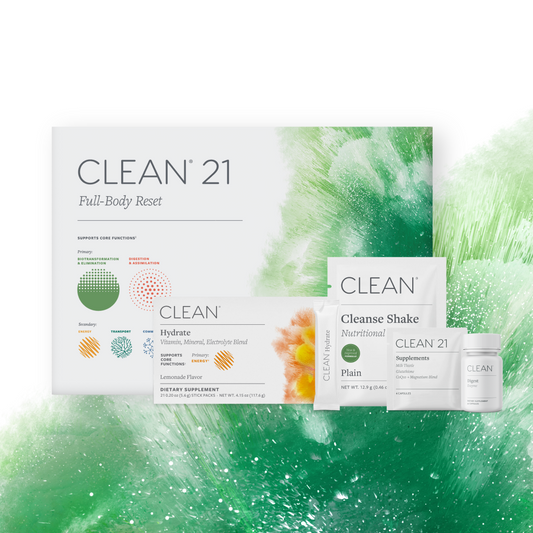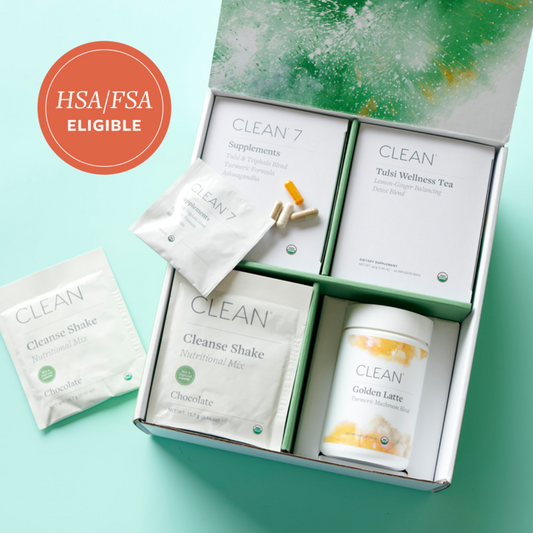
Yes, Winter Dehydration Is a Thing: 5 Easy Ways to Stay Hydrated This Season
|
Learn how to avoid winter dehydration with these 5 essential hydration tips. Stay energized, support your immune system, and feel your best all season long. |
When it comes to being dehydrated, we often think about summer. It’s hot out. We’re sweating. It’s easy to lose fluid just by the nature of being outside! What we don’t consider is that winter can dehydrate you just as much as summer can. But winter dehydration can be insidious because it can sneak up on you. We’re not sweating as much - but we’re still losing fluid. It may not be as obvious, but it still happens.
It’s crucial to stay hydrated year-round. But in the winter, it’s even more important to mind your hydration level. Today, let’s talk about winter dehydration and what you can do about it.
How Dehydration in Winter Sneaks Up on You
In the wintertime, we’re more susceptible to viruses and infections. The common misconception is that this happens because it’s cold out, but this isn’t the case. There are a couple of reasons as to why this happens. The first is that because it’s cold outside, we’re more likely to stay indoors and crank up the heater. Heat is very drying and viruses can thrive when the air is dry.
Plus, we’re all inside most likely with our families. We move throughout our days and come home where we spend time with each other. This also means we’re exposing one another to the viruses we may have encountered throughout our day.
The Importance of Hydration for Immunity During Winter
The dry air also causes you to become dehydrated. Staying adequately hydrated helps to flush toxins out of your system. Drinking water is crucial to keep all of your body's systems healthy and thriving. Staying hydrated promotes healthy circulation since half of your blood is made of water. That same blood is what carries immune cells to infection sites more rapidly compared to if you’re dehydrated.
And if you happen to come down with something, staying properly hydrated will help you recover faster for the same reason.
But Why Do I Not Feel Thirsty in the Winter?
It’s easier to monitor your hydration in the summer because you’re sweating more often. It’s an excellent barometer to measure your fluid intake because it reminds us to have an extra cup of water or two! But in the winter we’re not sweating as much. We may think we’re not losing any fluid at all, but this isn’t the case.
Though you may not sweat as heavily, you still sweat a little under your layers of clothes. You also lose fluid throughout the day through your bodily functions - including breathing! So, much like the summer, it’s important to keep a reminder to drink water close by to combat dehydration before it can even start.
Symptoms of Winter Dehydration
- low energy levels
- dark-colored urine
- constipation
- extreme thirst.
Make sure to stop dehydration symptoms in their tracks before they become more serious.
5 Winter Hydration Tips to Stay Healthy
These winter hydration tips are good all year round, but we’ve modified the list below so that it’s a more winter-friendly version. You can still reap the benefits of staying hydrated while also helping your immunity against cold and flu season.
1. Drink Warm Water
If you can’t bear the idea of having cold water, warm water is fine. Drinking warm water can actually have a lot of added benefits. This may include stimulating digestion, relieving constipation, improving circulation, and improving your central nervous system’s functions.
2. Infuse Your Water for Added Benefits
If you’re someone who doesn’t like water because you can’t stand the taste, don’t be afraid to infuse your water with fruit! Adding citrus like lemons or oranges not only makes water taste better, but it’s a natural way of adding vitamin C. You can also try ginger for a warm, spicy flavor that combats inflammation and cold symptoms.
3. Eat Your Water
Another way to stay hydrated is through ‘eating your water’. Roughly 20% of our fluid intake comes from the fruits and vegetables we eat. Make sure to choose water-rich produce such as apples, celery, melons, lettuce, and leafy greens.
4. Sip on Herbal Teas & Broths
Teas and broths can count toward your fluid intake as well. Just make sure that if you’re drinking tea it’s low caffeine or no caffeine for the best results. Herbal teas are a great way to boost your immune system depending on what you choose.
5. Hydrate with Electrolyte Drinks
Another way that you can help your body through the season is with an electrolyte drink. With our Hydrate Electrolyte Stick Blend, we’ve included 19 vitamins and minerals that keep your body balanced and optimized to feel its best. It not only replenishes electrolytes lost through exercise or dehydration, but the vitamins will help cover your nutritional needs. It supports your energy needs while keeping your immune system boosted throughout the day.

Stay Hydrated for Better Health This Winter No matter the season, hydration is always important to your body to maintain a healthy balance. You’ll feel healthier and be healthier. But keeping this habit is especially important throughout the colder months to keep your immune system strong and to stave away sneaky dehydration symptoms. With optimal hydration, your body will be sure to thank you.
For more tips on how to stay healthy throughout this winter season, be sure to sign up for our newsletter. You’ll find more lifestyle tips like this one, and be the first to know about new products before anyone else.






